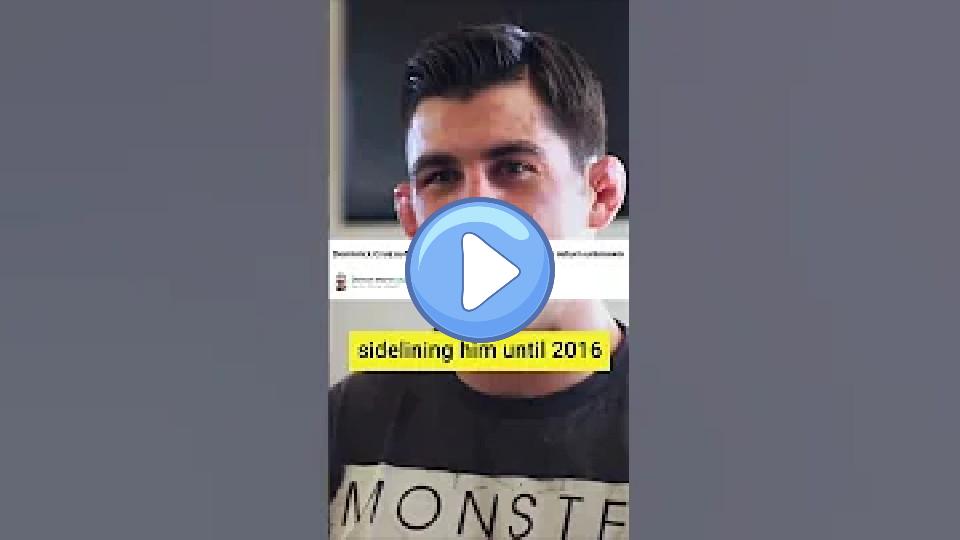Dominick Cruz's Sports Injuries
Type of Sport: Mma
Dominick Cruz's Sports Injuries Table
| Type | Area | Date | Consequences | Content | How It Happened | Recovery Duration | Rehabilitation Details | Impact On Career | Psychological Impact | Previous Injuries | Return To Competition | Severity | Treatment | Medical Staff | Long Term Impact | Preventive Measures | Competition Missed | Initial Symptoms | Re Injury Risk | Support System | Rehabilitation Location |
|---|---|---|---|---|---|---|---|---|---|---|---|---|---|---|---|---|---|---|---|---|---|
| Ligament Injuries | Left Knee | 2012-11-30 | Further delayed his return to competition. | While recovering from his right ACL surgery, Cruz tore the ACL in his left knee, compounding his recovery challenges and causing another significant delay in his return. | During rehabilitation from his right knee injury, Cruz tore his ACL in his left knee. | 12 months | Underwent another surgery for the left knee ACL tear followed by physical therapy. | Significantly extended his absence from competition. | Increased mental stress and frustration due to another setback. | Previous right knee ACL tear. | 2014-09-27 | Severe | Surgical repair of the left ACL followed by physical therapy. | Orthopedic surgeon and physical therapist. | Increased risk of future knee injuries. | Continued focus on knee strengthening and stability exercises. | Missed additional UFC events and title fights. | Severe pain and instability in the knee. | High, especially with a history of bilateral ACL i | Strong support from his team, family, and fans. | Local sports rehabilitation center. |
| Ligament Injuries | Right Knee | 2011-09-30 | He was forced to withdraw from his scheduled fight. | Dominick Cruz first tore his ACL in his right knee in October 2011, which led to his withdrawal from a scheduled fight against Urijah Faber at UFC 148. | During a training session, Dominick Cruz tore his ACL (anterior cruciate ligament). | 12 months | Underwent surgery to repair the torn ligament, followed by extensive physical therapy. | Missed a significant period of competition, which affected his ranking and momentum. | Frustration and mental stress due to prolonged recovery and inability to compete. | None reported prior to this incident. | 2014-09-27 | Severe | Surgical repair of the ACL followed by physical therapy. | Orthopedic surgeon and physical therapist. | Increased risk of future knee injuries. | Strengthening exercises for knee stability and regular check-ups. | Missed multiple UFC events including a title defense. | Severe pain and instability in the knee. | High, due to the nature of ACL injuries. | Support from his team, family, and fans. | Local sports rehabilitation center. |
| Ligament Injuries | Right Knee | 2014-11-30 | Forced to vacate his UFC Bantamweight Championship. | In December 2014, after returning to competition and reclaiming his title, Cruz tore the ACL in his right knee again, leading to another long recovery period and the need to vacate his championship. | During a training session, Cruz sustained another ACL injury in his right knee. | 12 months | Surgery followed by a comprehensive rehabilitation program. | Had to vacate his UFC Bantamweight Championship and miss another year of competition. | Significant mental toll due to repeated setbacks. | Previous right and left knee ACL tears. | 2016-01-17 | Severe | Surgical repair and physical therapy. | Orthopedic surgeon and physical therapist. | Chronic knee issues and increased risk of further injuries. | Ongoing knee strengthening and stability exercises. | Missed another year of competition and vacated his title. | Severe pain and knee instability. | Very high given the history of multiple ACL tears. | Continued support from his team, family, and fans. | Local sports rehabilitation center. |
Dominick Cruz's Sports Injuries Videos
Joe Rogan talks to Dominick Cruz about his streak of injuries.
Dominick Cruz discusses his severe injury streak and the mental challenges he faced while recovering. He details the physical and psychological journey of overcoming multiple ACL reconstructions and a torn quad. Cruz explains how he learned to let go of the need to fight and found peace by focusing on other aspects of life, such as coaching and working as an analyst. This mindset shift allowed him to recover and return to fighting with a renewed perspective. He emphasizes the importance of mental health and accepting help during low points, ultimately viewing his struggles as a gift that taught him valuable life lessons.
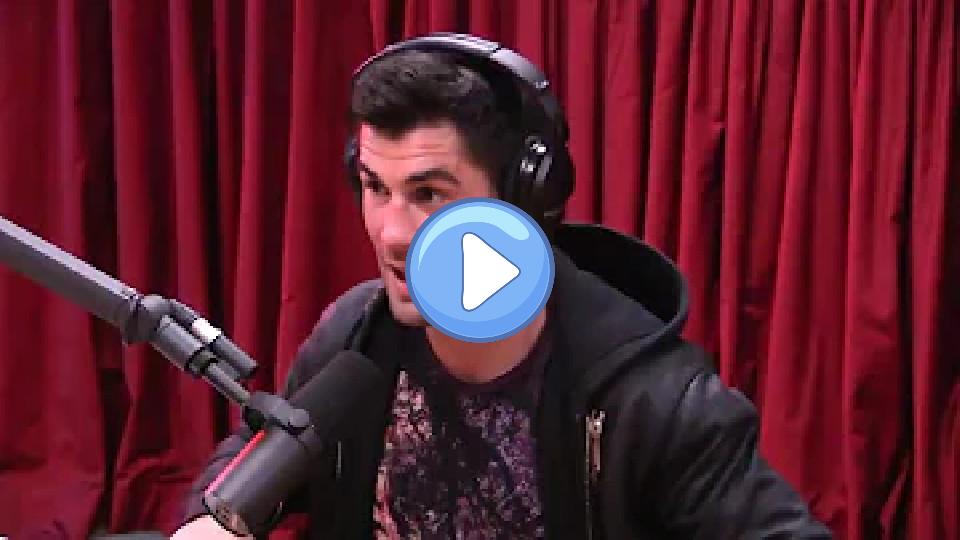
A History of Dominick Cruz's Injuries
Dominick Cruz is a fascinating and often inspirational figure in the MMA community, but his career has been plagued by numerous injuries. Despite his immense talent and determination, Cruz has repeatedly faced setbacks just as he seemed to recover. His injury history includes a broken hand in 2010, a torn ACL in 2012, and subsequent complications that kept him out of the Octagon for nearly three years. He made a significant comeback in 2014, only to suffer another ACL tear in his other knee. Despite these challenges, he won the bantamweight title again and defended it successfully. However, more injuries followed, including plantar fasciitis and a broken arm. As of 2019, Cruz faced another setback with torn shoulder ligaments. While his perseverance is inspirational, the repeated injuries have left his career feeling unfinished. Even if he retires from fighting, Cruz is expected to remain a prominent figure in the sport through his commentary and analysis.
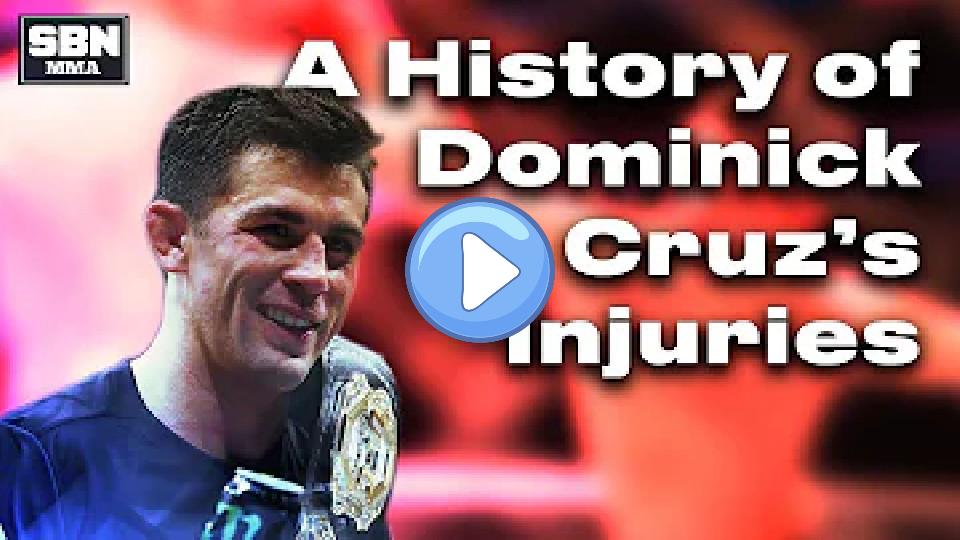
Dominick Cruz is the "Sun Tzu of Mental Warfare"
The incredible trash-talking skills of the greatest UFC bantamweight of all time, Dominick Cruz. #UFC #MMA #DominickCruz
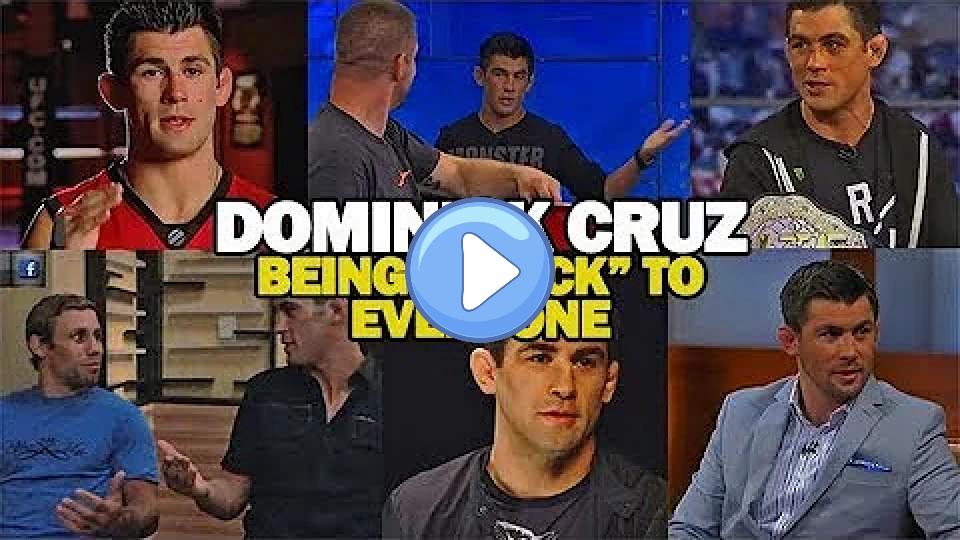
Dominick Cruz: Overcoming Injury at the Peak of a Fighting Career
Dominick Cruz discusses how he handled being injured at the peak of his career, focusing on the mindset of adapting to change and practicing retirement. He explains the importance of following a strict rehab regimen and the mental challenges he faced, including dealing with depression due to the lack of exercise. Cruz highlights the need for adaptability and how he eventually returned to fight for the title against TJ Dillashaw. He emphasizes the role of antidepressants as temporary support rather than a solution, comparing them to a floatation device that helps one stay afloat during tough times.
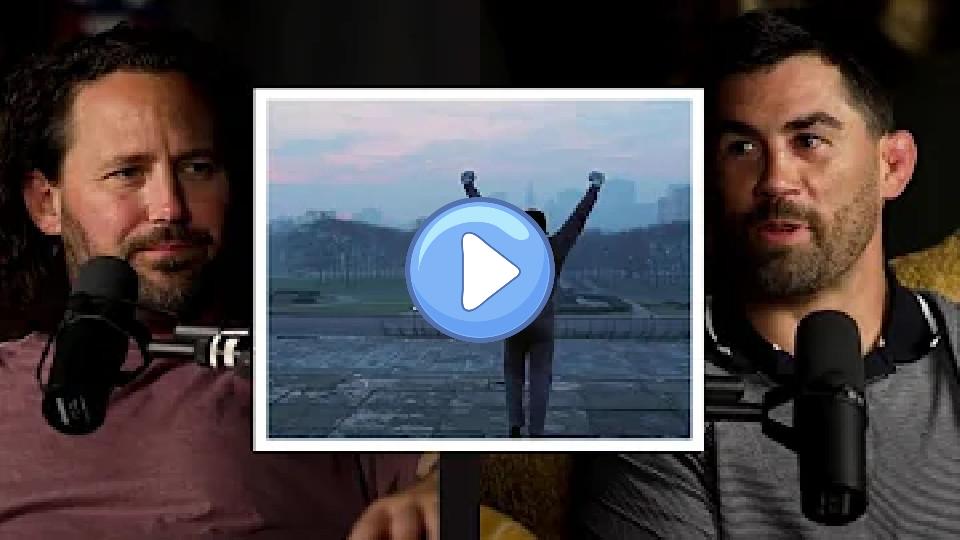
Dominick Cruz explains his fighting style (from Joe Rogan Experience #921).
Dominick Cruz discusses with Joe Rogan how he developed his unique fighting style. He explains that his style was created from a need to avoid damage in a sport with new rules and equipment, like four-ounce gloves. His focus was on being hard to hit, which led to constant movement and not staying on the centerline. This approach allowed him to neutralize the strengths of various martial arts styles, which typically attack in straight lines. Cruz emphasizes the importance of adjustments and mental agility in fighting, which he believes are key to staying on top over time. He credits his success to working with coach Eric del Ferro, who helped refine his natural movements and integrate them into a professional-level style. Cruz's style is a blend of wrestling and striking, developed from his experiences fighting larger opponents and his ability to adapt and innovate.
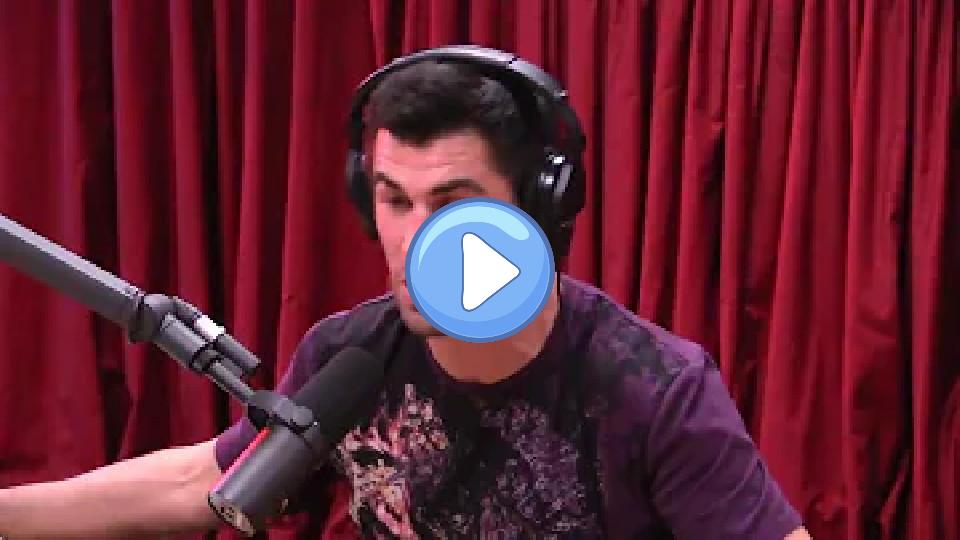
Dominick Cruz - The World Changed After Injury | LatiNation
Dominick Cruz, the newly crowned UFC bantamweight champion, is not only known for his unorthodox fighting style but also for his resilience in overcoming two devastating knee injuries. Despite these setbacks, he reclaimed his title and is recognized as one of MMA's most insightful analysts. Cruz's journey includes moving to San Diego for his first title fight and overcoming a four-year injury period. His comeback to win the belt taught him the value of perseverance and truth in fighting. Cruz views each fight as a personal challenge, regardless of the opponent's reputation, emphasizing that for him, it's about facing and overcoming new challenges.
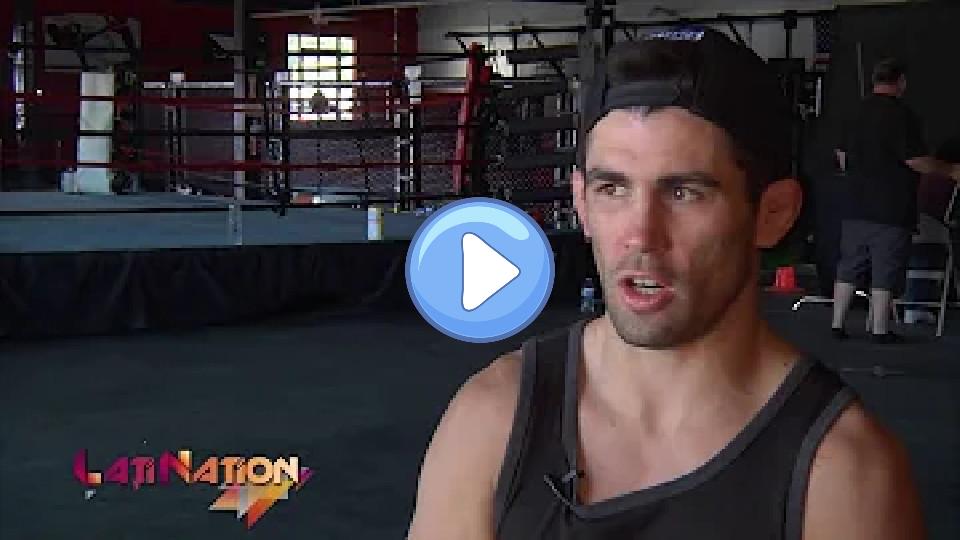
Dominick Cruz and the Decline of Team Alpha Male
Dominick Cruz's journey is one of immense triumphs and setbacks as he navigated a career marred by injuries yet defined by resilience. As the first Bantamweight Champion in the UFC, Cruz faced devastating knee surgeries, a torn groin, and broken hands that sidelined him, allowing his competitors to take his place. Despite these challenges, Cruz's rivalry with Uriah Faber shaped his career and the UFC's bantamweight division. Cruz lost his first fight to Faber but rebounded to become a dominant champion, only to be sidelined repeatedly by injuries, including multiple ACL tears. His journey reflects a battle against adversity, as he persevered to reclaim his title after years of setbacks. His rivalry with Team Alpha Male, particularly with Faber and later with Cody Garbrandt, added drama to his career. Cruz's story is a testament to resilience, demonstrating that despite being beset by injuries, he could achieve greatness and inspire others by overcoming life's challenges.
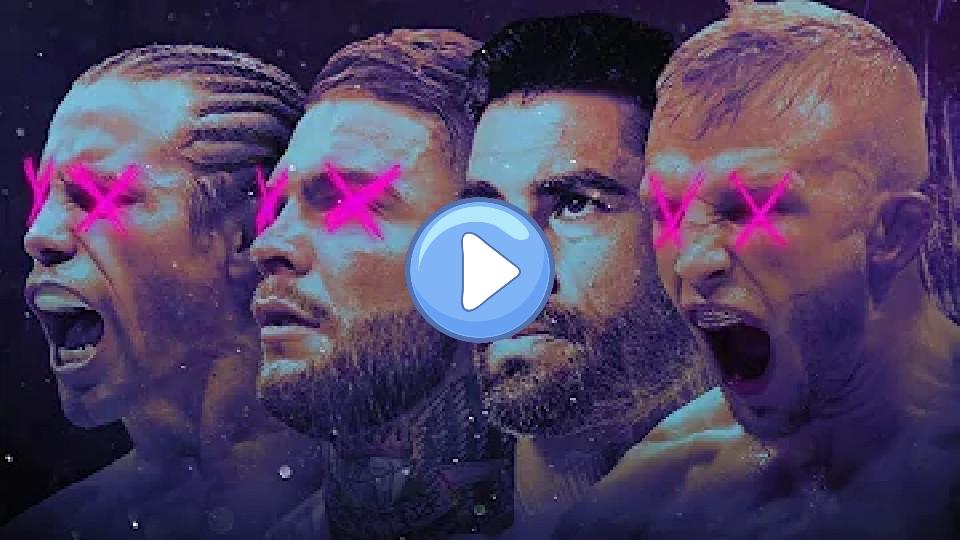
Dominick Cruz Rehabs from ACL at SCL
Dominick Cruz, the UFC Bantamweight Champion, is recovering from his second ACL surgery at Sport Science Lab. After initially choosing a cadaver graft for his first surgery, which his body rejected, he opted for a patella tendon graft for the second surgery. This approach uses his tissue, ensuring better integration and blood flow. Cruz emphasizes the importance of proper rehabilitation and has found success at Sport Science Lab, which caters to high-level athletes. He feels optimistic about his recovery, regaining his explosiveness and athleticism, and is preparing for a future fight with Hennon Barão.
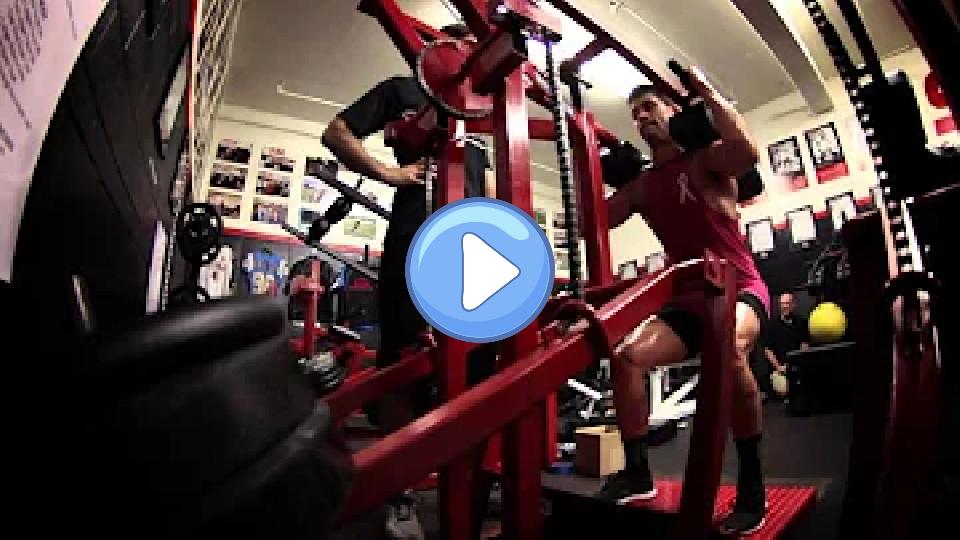
The Saddest UFC Champion | Dominick Cruz's Struggle to Become UFC Champion #shorts #MMA #UFC
Dominick Cruz has had a storied MMA journey. He became the WEC Bantamweight Champion after defeating Brian Bowles, and...
